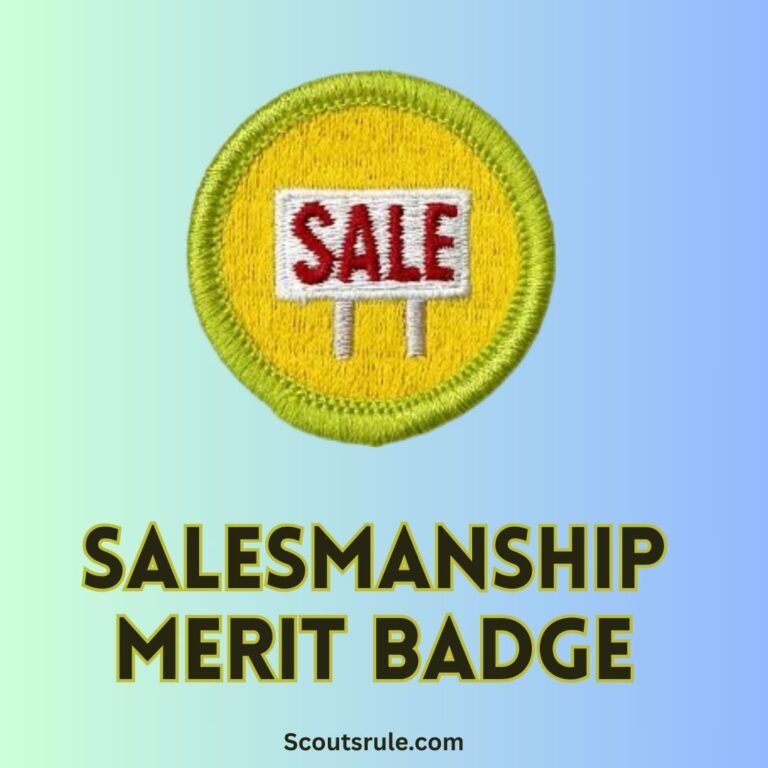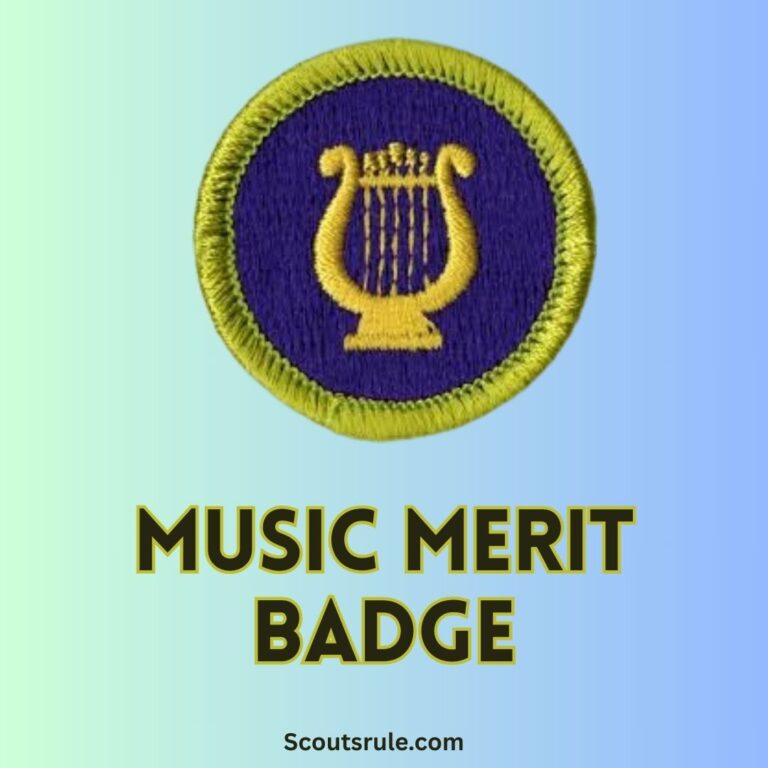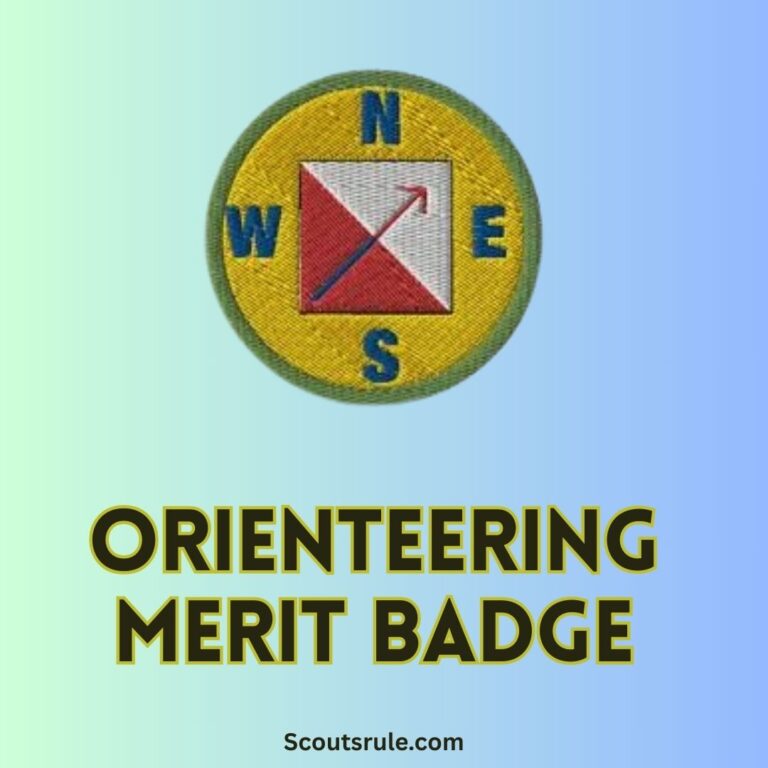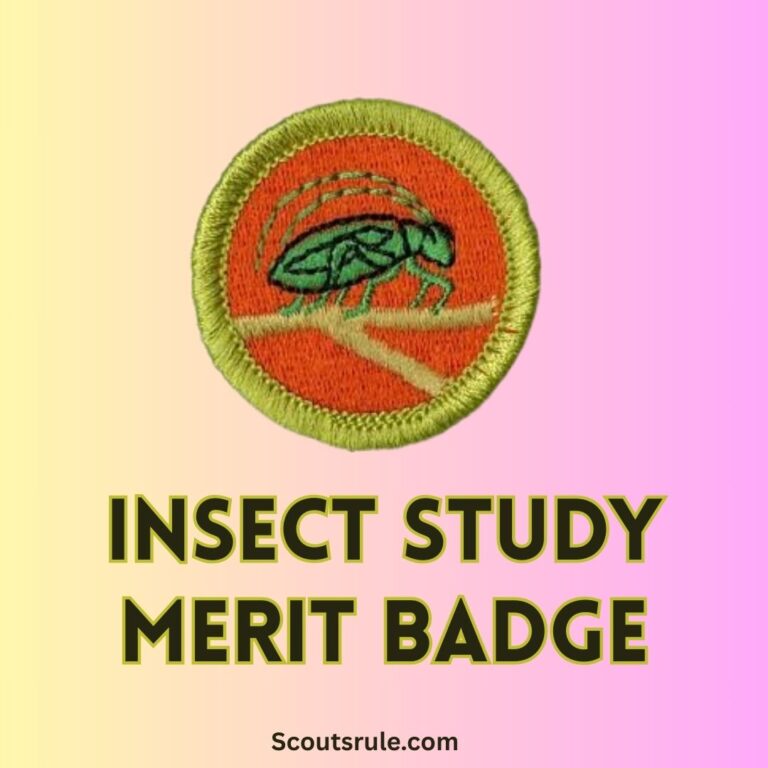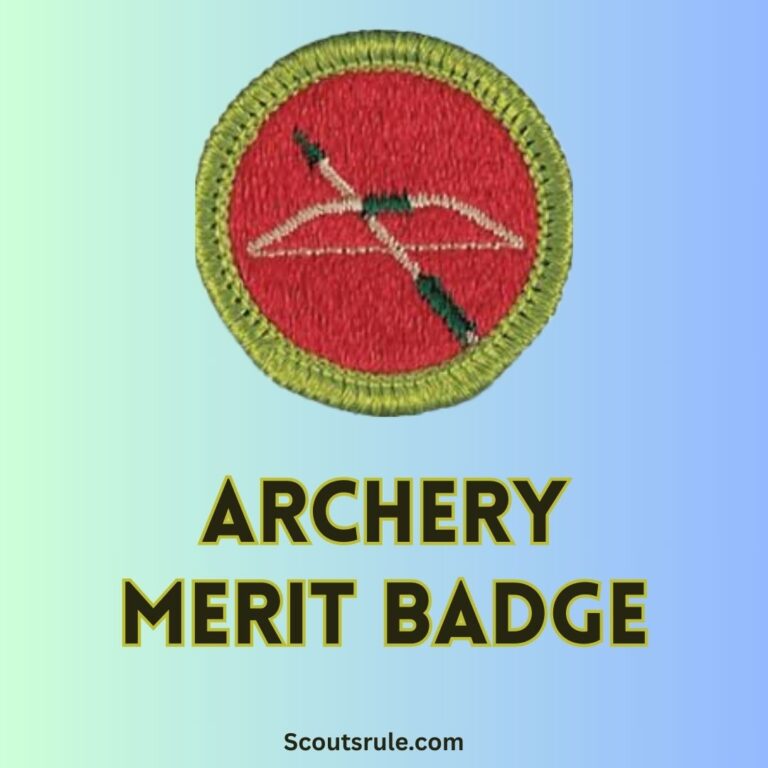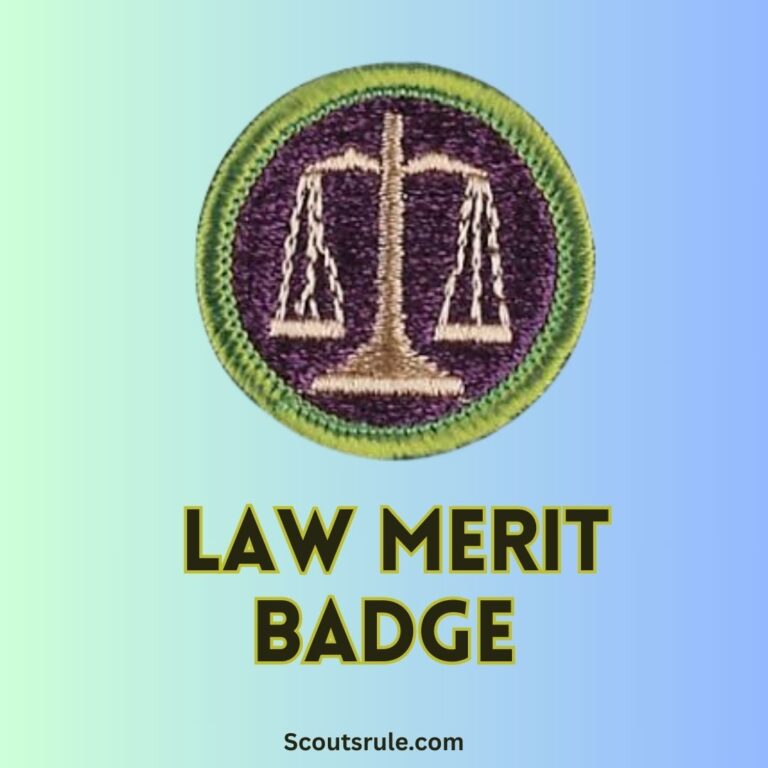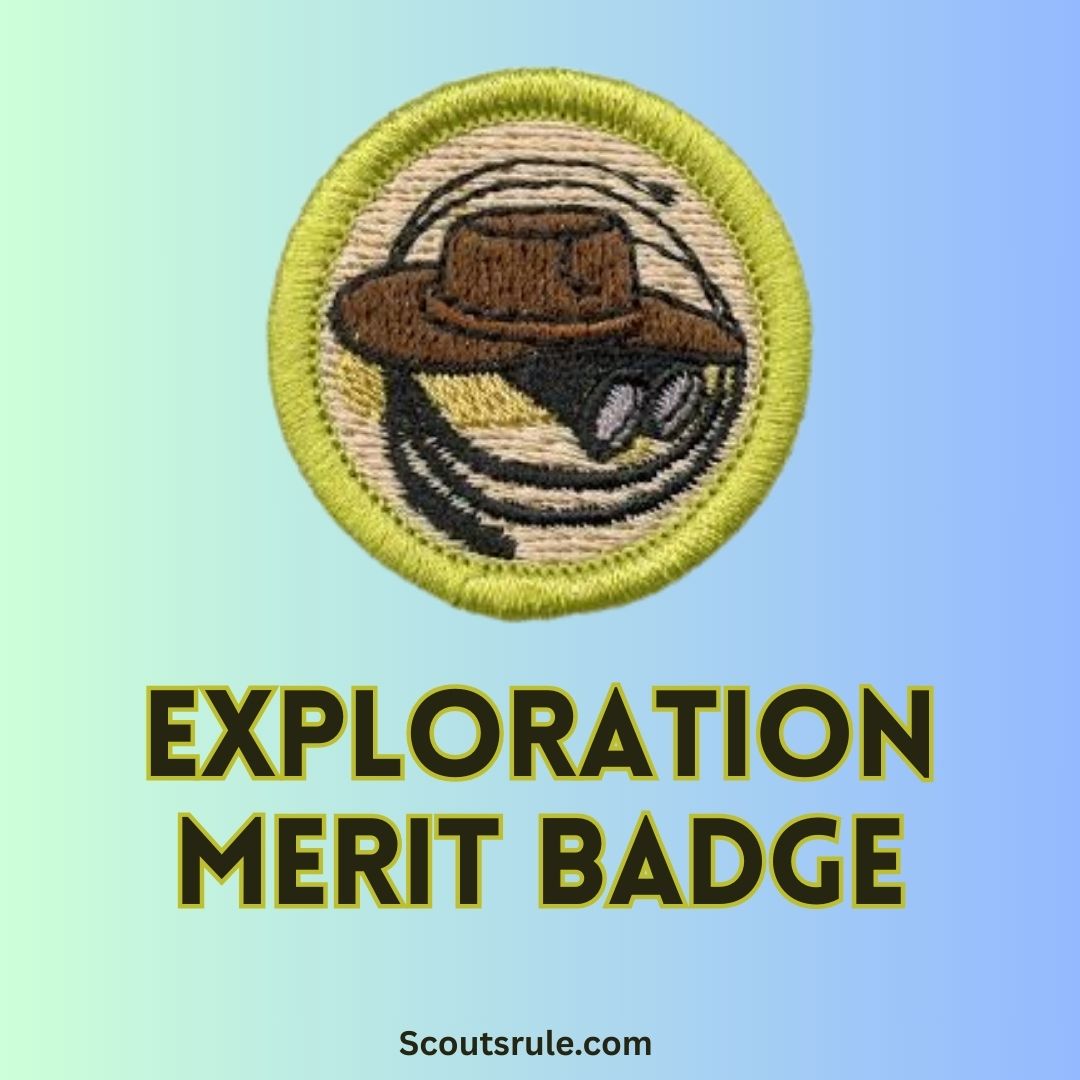
This guide is designed as an extensive study aid and project planner to help you understand what exploration means in a Scouting context, to examine its historical, scientific, and cultural aspects, and to develop the skills necessary to plan and execute an expedition or field study. It outlines key requirements, project ideas, hands‑on activities, and strategies for documenting your work. Remember, this guide is intended to supplement the official Boy Scouts of America merit badge pamphlet. Always work closely with your merit badge counselor and review the most current official guidelines to ensure your projects and documentation meet local council standards.
Post Contents
- Introduction: What Is Exploration?
- 2. Purpose and Objectives
- 3. Key Concepts of Exploration
- 4. Overview of Badge Requirements
- 5. Field Projects and Hands‑On Activities
- 6. Documentation, Record Keeping, and Presentation Strategies
- 7. Additional Tips, Resources, and Career Connections
- Conclusion: Embracing the Spirit of Exploration
Introduction: What Is Exploration?
Exploration is more than simply traveling or adventuring—it is a systematic search for discovery that encompasses scientific, historical, or cultural inquiry. It involves seeking out new knowledge through direct observation, research, and personal experience. In Scouting, exploration is framed not only as a physical challenge or outdoor adventure but also as an intellectual and ethical pursuit that requires careful planning, research, and respect for the environment and local cultures. Whether you’re venturing into the wilderness, investigating ecological phenomena, studying the stars, or exploring a museum to uncover historical artifacts, exploration calls upon creativity, problem‑solving, and a spirit of curiosity.
2. Purpose and Objectives
The Exploration Merit Badge is designed to help you:
- Develop a Clear Understanding of Exploration: Learn to define what exploration means, differentiating it from related activities like adventure travel or recreational hiking.
- Examine the Historical and Scientific Bases of Exploration: Discover how exploration has shaped human understanding of the world—from maritime voyages and space missions to laboratory research.
- Build Skills in Research and Planning: Practice gathering information, analyzing maps and data, and preparing an expedition or research plan.
- Engage in Hands‑On Learning: Participate in projects that simulate real-world explorations, whether on land, in water, or in controlled environments such as labs.
- Reflect on the Ethical and Cultural Implications: Understand the responsibilities that come with discovering new places, encountering unstudied environments, and documenting cultural heritage.
- Investigate Future Opportunities: Explore career pathways and academic interests related to environmental science, archaeology, astronomy, anthropology, and more.
Achieving these objectives will deepen your awareness of the world and equip you with skills and insights valuable not only in Scouting but also in lifelong learning and responsible citizenship.
3. Key Concepts of Exploration
3.1 Defining Exploration vs. Adventure
To begin, it’s important to distinguish exploration from other outdoor activities. While adventure travel, trekking, and hiking are generally recreational, exploration implies a purpose directed toward discovery and understanding. In exploration, you set goals to uncover unknown facts—whether by mapping uncharted terrain, studying an ecological niche, or deciphering historical clues—whereas adventure may be more focused on risk-taking or personal challenge. For example, climbing a mountain for the thrill may be an adventure, but if your aim is to document previously unrecorded natural features along a mountain ridge, that constitutes exploration.
3.2 Scientific, Historical, and Modern Exploration
Exploration can occur in several dimensions:
- Scientific Exploration: Involves formulating hypotheses about natural phenomena and testing those theories in the field or in laboratories. Examples include biological surveys, geological mapping, or astronomical observations.
- Historical Exploration: Focuses on uncovering and interpreting human history through the discovery of places, artifacts, and documents that help piece together past events. Archaeologists, historians, and genealogists follow this type of exploration.
- Modern Exploration: Embraces technology as well as field experience. Today, explorers may use digital mapping, satellite imagery, and advanced research tools to explore everything from the deep ocean to distant planets.
Understanding how each realm of exploration contributes to our collective knowledge will be fundamental as you work through the merit badge.
4. Overview of Badge Requirements
While you should check your official merit badge pamphlet for precise language, most versions of the Exploration Merit Badge include the following core requirements:
4.1 Requirement 1: General Knowledge
- Define Exploration: In your own words, define what exploration means and explain how it differs from other types of outdoor activities, such as adventure travel, hiking, or guided tours.
- Detail the Varied Approaches: Explain how explorations differ based on their setting. For example, describe how exploring a jungle, an urban environment, an ocean, or a research laboratory requires different tools, methods, and safety protocols.
4.2 Requirement 2: History of Exploration
- Discuss the History: With your merit badge counselor, discuss the historical development of exploration. Choose a field of study—such as oceanography, aerospace, or archaeology—that has benefited from exploration.
- Examples to Consider:
- Marine expeditions that mapped unknown coastlines.
- Astronomical expeditions leading to space exploration milestones.
- Ground-breaking archaeological expeditions that reshaped our understanding of past civilizations.
- Personal Reflection: Explain how these historical milestones have influenced modern society and shaped your own perspective regarding the importance of exploration.
4.3 Requirement 3: The Importance of a Scientific Basis
- Scientific Foundation: Explain why exploration must have a scientific basis. Discuss how systematic observation and research provide a framework to interpret discoveries.
- Contribution to Knowledge: Reflect on how scientific exploration has led to innovations, advances in technology, and a deeper understanding of natural phenomena. Discuss the essential skills of hypothesis formulation, experimentation, and data analysis.
4.4 Requirement 4: Real-Life Exploration
You will be required to learn about a real-life exploration in one of three ways. Choose one of these projects:
- Interview a Living Explorer: Research and find a living explorer (this could include a professional or even an experienced amateur) and interview them about their experiences. Learn what motivates them, the challenges they’ve faced, and how they overcome obstacles.
- Research a Scientific Expedition: Select an actual scientific exploration expedition (for instance, an oceanographic research trip or an archaeological dig). Gather information about the expedition’s objectives and its most important discoveries. Explain how the information gained helped scientists answer important questions.
- Exploration in a Lab: Research and explain how exploration is carried out in a laboratory or modern scientific research facility. Discuss how the systematic methods used in lab exploration are similar to field exploration, even though the settings differ drastically.
Document your chosen project in a presentation or written report. Include both facts and personal reflections on what these experiences or studies reveal about the nature of exploration.
4.5 Requirement 5: Exploration in the Laboratory
- Analysis of Lab-Based Exploration: Discuss the similarities between laboratory research and field exploration. For example, explain how scientists use systematic experiments in controlled environments to understand phenomena that also occur in nature.
- Examples: Describe how researchers might explore chemical, biological, or physical principles in the lab. Reflect on how these insights contribute to our understanding of larger ecosystems or technological advancement.
- Sharing Your Findings: Present your analysis either to your counselor or your unit as a way of showing how exploration extends beyond the outdoors.
5. Field Projects and Hands‑On Activities
Practical hands‑on projects not only deepen your understanding of exploration but also build the skills you need for planning and leadership.
Project Ideas:
- Planning a Mini Expedition: Plan a small field trip or expedition to a local park, forest, or other natural area. Develop a clear objective (for example, mapping trails, observing wildlife, or studying plant species). Prepare a detailed plan including a route, schedule, supplies, safety precautions, and roles if you are working with a team.
- Documentation: Record your plan in a written report with maps, a checklist of supplies, and a risk assessment. Following the trip, reflect on what you learned during the expedition and how your plan matched the real conditions.
- Field Observation Journal: Take a field notebook on regular nature walks where you practice detailed observation. Record environmental conditions, species you encounter, and any interesting features of the landscape.
- Documentation: Include photographs, annotated sketches, and notes on how various environmental factors (such as weather or terrain) affect your experience.
- Online Research Project on an Expedition: Choose a famous scientific expedition or a current exploration mission. Research its goals, major findings, challenges, and impacts on scientific understanding.
- Documentation: Create a multimedia presentation or written report summarizing your research. Include images, maps, interviews (if available), and your critical analysis of the expedition’s legacy.
- Lab Exploration Simulation: Visit a local science center, university laboratory, or museum that exhibits interactive displays related to research. Compare what you see with what you believe to be crucial aspects of field exploration.
- Documentation: Write a brief report that contrasts lab and field exploration, noting how both methods contribute to our understanding of diverse subjects.
Each project should be documented clearly with sufficient details, reflective observations, and evidence (photos, maps, diagrams) of the process.
6. Documentation, Record Keeping, and Presentation Strategies
A strong record of your work is essential to the merit badge:
- Maintain a Detailed Exploration Journal: Record all your research findings, expedition plans, field observations, and reflections on each activity. Note dates, locations, weather conditions, and any challenges encountered.
- Visual Documentation: Use photographs, diagrams, and maps to illustrate your projects. Annotated sketches or digital scans of your expedition plans and data logs increase the credibility of your work.
- Compile a Final Portfolio: Organize your journal entries, research reports, project documents, and visual aids in a binder or digital folder with a clear table of contents. Be sure to label each section according to the badge requirements.
- Prepare a Final Presentation: Create a slideshow, poster, or oral report summarizing your overall exploration experiences. Include the key lessons learned, the impact of scientific research on exploration, and personal reflections on the importance of continuing your explorations in everyday life.
7. Additional Tips, Resources, and Career Connections
Additional Tips
- Plan Ahead: Exploration projects require thorough planning. Start with a clear objective, a well-defined route or research question, and a comprehensive risk assessment.
- Be Curious and Critical: Constantly ask questions about the ‘why’ behind every observation. Reflect on how each element of your environment or each historical expedition has contributed to our current knowledge.
- Collaborate: Consider working with peers or local experts to enrich your learning. Group discussions can lead to new insights and more detailed observations.
- Engage Your Senses: Exploration is a multisensory experience. Note not only what you see but also sounds, smells, and tactile details in the environment.
Recommended Resources
- Official BSA Materials: Check the official Boy Scouts of America Exploration Merit Badge page and pamphlet for specific requirements and guidelines.
- Websites and Online Databases: Utilize reputable resources such as the National Geographic website, NASA’s exploration missions, and academic databases that focus on field research.
- Books: Consider reading titles like “Exploration: The Ultimate Adventure” or memoirs by famous explorers. Local libraries often have works on both historical and modern exploration.
- Documentaries and Videos: Watch documentaries on historical expeditions, oceanic exploration, space missions, or remote land surveys to see the challenges and triumphs of real explorers.
- Local Natural History and Science Centers: Visiting museums or centers dedicated to natural history can offer hands‑on exhibits and knowledgeable staff to answer your questions.
Career Connections
Exploration as a concept is closely tied to various career paths:
- Environmental Science and Ecology: Field research in biology, conservation, and climate science.
- Archaeology and Anthropology: Uncovering historical human activities, cultures, and heritage.
- Geology and Geography: Analyzing earth sciences, landscapes, and natural phenomena.
- Aerospace and Marine Technology: Careers exploring space, the oceans, or other remote frontiers.
- Adventure and Expedition Leadership: Leading guided tours, adventure travel, or urban exploration initiatives.
Research potential careers in these fields by interviewing professionals, attending career fairs, or exploring academic programs that focus on field research and exploration.
Conclusion: Embracing the Spirit of Exploration
The Exploration Merit Badge is not just about proving that you can navigate a trail or recite facts about expeditions; it is about cultivating a mindset of curiosity, critical thinking, and responsible discovery. As you define exploration, study its history, examine how science underpins exploratory efforts, and engage in practical projects—whether in the field or in a laboratory—you build abilities that extend well beyond Scouting.
Every map you draw, every expedition plan you create, and every question you ask about the world deepens your understanding of our planet and your place within it. The journey of exploration is lifelong, continuously fueling discovery, innovation, and self‑growth.
May your experiences with the Exploration Merit Badge inspire you to venture boldly, to seek answers with integrity and persistence, and to honor both the natural world and the legacy of explorers who came before you. Embrace every challenge as an opportunity to learn, and let your passion for discovery guide you toward a future filled with adventure, knowledge, and positive impact.
Happy exploring—and may your journey open doors to endless discovery and wonder!

Hi, Robin here, A former lead Scout and here I share my inspiring stories about USA Scouts, leadership, adventure, how to guides and more.

